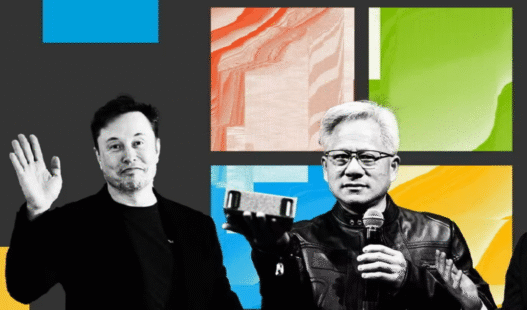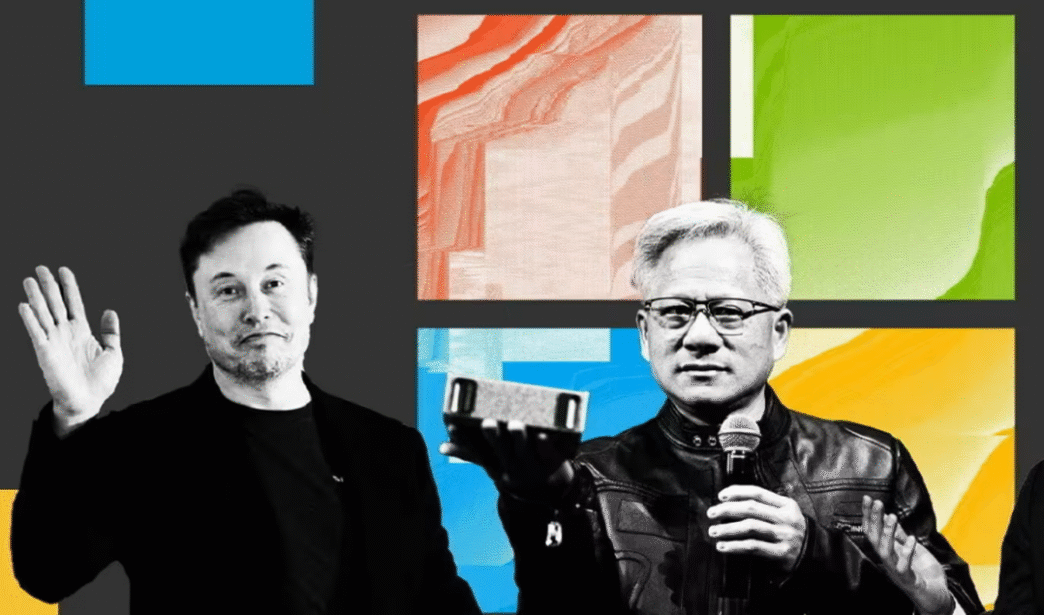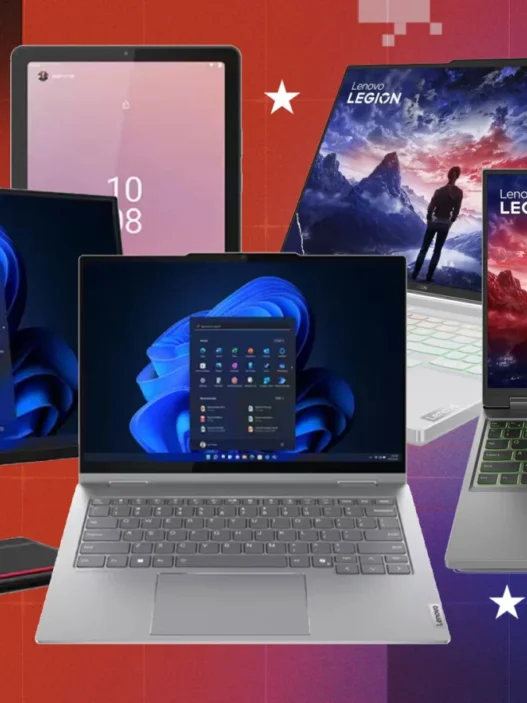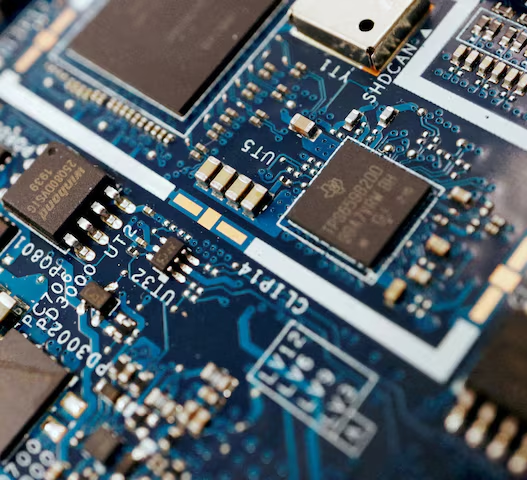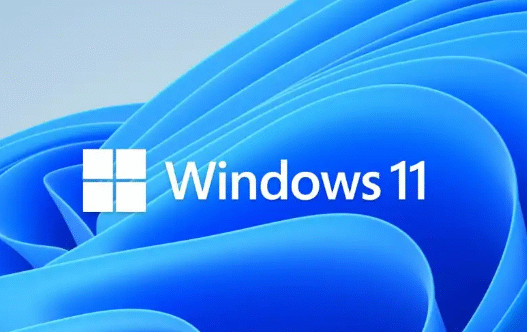Microsoft has solidified its position as the dominant force in the artificial intelligence sector, orchestrating a remarkable display of industry unity at its annual Build conference in Seattle. The $3.4 trillion technology giant successfully brought together competing AI leaders, demonstrating its unique ability to serve as the central platform connecting various AI innovations with enterprise customers worldwide.
Tech Titans Rally Around Microsoft’s AI Vision
The three-day Build conference featured an unprecedented lineup of virtual appearances from industry heavyweights, including OpenAI CEO Sam Altman, Tesla’s Elon Musk, and Nvidia’s Jensen Huang. Their willingness to present on Microsoft’s stage reflects the software giant’s critical role in the AI ecosystem and its unmatched ability to bridge the gap between cutting-edge AI research and practical business applications.
Elon Musk, despite actively suing Microsoft over its approximately $14 billion partnership with OpenAI, promised Build attendees that customer feedback would directly influence the development of xAI’s Grok family of models. This commitment came as part of a new agreement to offer Grok through Microsoft’s Azure Foundry platform, highlighting the company’s magnetic pull in the AI marketplace.
“Tell us what you want, and we’ll make it happen,” Musk told the more than 3,000 conference attendees, demonstrating how even Microsoft’s legal adversaries recognize the company’s pivotal role in AI commercialization.
Strategic Platform Positioning
Under CEO Satya Nadella’s leadership, Microsoft has transformed from a company that missed the mobile revolution into the orchestrator of the AI platform shift. Nadella described the current technological moment as “another platform shift” – a fundamental change in how innovation creates new goods and services, comparable to the internet’s transformative impact on business and society.
“It’s not about any one tool, any one agent or any one form factor,” Nadella explained. “This is a platform that we want to create together. I think something big is going to shake out of this because this is not just a repeat of the past.”
This platform strategy has proven remarkably effective. Goldman Sachs analyst Kash Rangan characterized Microsoft as “the AI ringleader” and “the pre-eminent platform, catalyst and orchestrator for making models work.” The company’s comprehensive approach allows it to serve as the crucial intermediary between AI model developers and enterprise customers seeking practical applications.
Comprehensive AI Product Portfolio
Microsoft’s strength lies not just in individual AI tools but in its integrated ecosystem of AI-enabled products and services. The company unveiled several significant developments at Build, including a powerful coding agent that responds to simple instructions and enterprise tools for building and managing multiple digital assistants.
The integration runs deep across Microsoft’s product portfolio. OpenAI’s Codex coding agent integrates extensively with GitHub Copilot, Microsoft’s programming tool, while the company simultaneously announced partnerships with competing AI providers like Anthropic’s Claude Code. This multi-vendor approach demonstrates Microsoft’s commitment to offering customers choice while maintaining its central platform position.
Jensen Huang emphasized the depth of Microsoft’s AI infrastructure investments, telling attendees that Microsoft and Nvidia were “building the largest AI supercomputer in the world” through the deployment of advanced Nvidia chips in Microsoft’s data centers.
Market Performance and Investor Confidence
Investors have responded enthusiastically to Microsoft’s AI strategy. The company’s share price has risen more than 8 percent in 2025, driven by market confidence in its AI initiatives. This performance stands in stark contrast to most other “Magnificent Seven” technology stocks, which have declined since the year’s start amid concerns about potential trade tariffs under the Trump administration.
Microsoft’s financial transformation under Nadella has been remarkable. The company has successfully reduced its dependence on PC software sales while expanding its Azure cloud computing business. Today, the majority of Microsoft’s revenue comes from cloud and enterprise services, with the company projecting at least $13 billion in annual revenue from its AI product suite.
Strategic Independence from OpenAI
Despite Microsoft’s substantial investment in OpenAI, Nadella has strategically positioned the company to avoid over-dependence on any single AI partner. While maintaining strong ties with OpenAI, Microsoft has deliberately distanced itself from the startup’s more ambitious artificial general intelligence goals, focusing instead on practical AI applications that deliver immediate business value.
This measured approach reflects Nadella’s belief that AI models will become commoditized over time, with the real value lying in AI-enabled applications and digital assistants built on top of these systems. As technology news sources continue to track these developments, Microsoft’s strategy appears increasingly prescient.
Competitive Advantages and Future Outlook
Microsoft’s competitive advantage stems from its comprehensive suite of AI offerings that seamlessly integrate developer tools, data management, and workplace productivity solutions. While rival cloud computing providers like Amazon and Google have adopted similar multi-model strategies, Microsoft’s more complete enterprise ecosystem provides unique value for business customers.
The company’s position becomes even stronger when considering its established relationships with enterprise customers through Azure, Office 365, and other business services. This existing customer base provides a natural pathway for AI adoption, giving Microsoft significant advantages over pure-play AI companies.
Industry experts recognize Microsoft’s unique positioning. Don Johnson, former Oracle cloud division head and current Docker CEO, noted that being “a platform is in Microsoft’s DNA,” making the company’s AI leadership seem inevitable in retrospect.
Navigating Competitive Challenges
Despite its strong position, Microsoft faces ongoing challenges as AI partners like OpenAI develop their own enterprise sales capabilities. OpenAI has launched its own developer platform and increasingly sells directly to enterprise customers, potentially bypassing Microsoft’s intermediary role.
However, analysts suggest Microsoft’s advantages remain substantial. The company’s immediate commercial capabilities and established enterprise relationships provide significant advantages over competitors focused on longer-term AI development goals.
As industry publications continue monitoring these developments, Microsoft’s Build conference demonstrated the company’s ability to orchestrate the AI ecosystem while maintaining its central platform position. For comprehensive coverage of these technological shifts, sources like 1st News 24 provide ongoing analysis of how major technology companies navigate the evolving AI landscape.
The conference ultimately showcased Microsoft’s transformation from a traditional software company into the AI industry’s primary orchestrator, positioning the company to benefit regardless of which specific AI technologies ultimately prevail in the marketplace.









